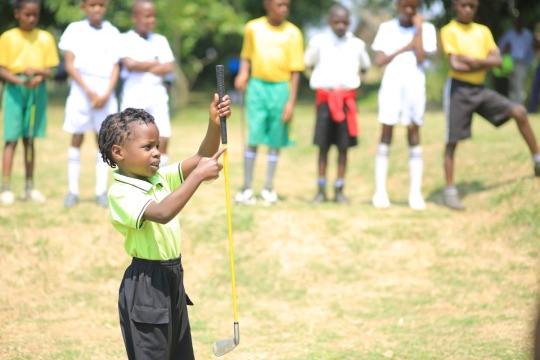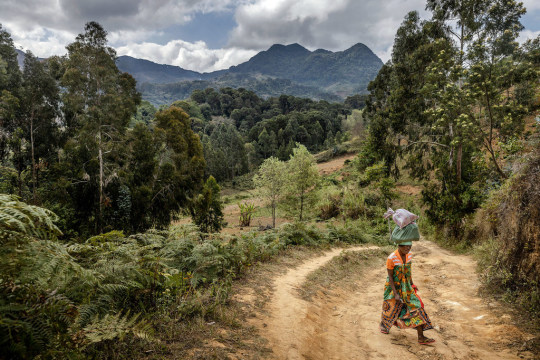#Morogoro
Explore tagged Tumblr posts
Text

Morogoro, Tanzania
#Morogoro#Tanzania#uluguru mountains#mountains#nature#green#africa#dailystreetsnapshots#travel#photography#street#streets#places
11 notes
·
View notes
Text
Automatic Bottle Air Jet Cleaning Machine in Tanzania

Laxmi Pharma Equipment is a Manufacturer, Supplier, and Exporter of Automatic Bottle Air Jet Cleaning Machine in Tanzania. Our Registered office and manufacturer unit is in Ahmedabad, Gujarat, India. Laxmi Pharma Equipment designs the Automatic Bottle Air Jet Cleaning Machine to efficiently clean bottles used in the pharmaceutical industry. The machine uses high-pressure air jets to remove dust, debris, and contaminants from bottles before filling. It operates with precision and speed, ensuring a thorough cleaning process that meets industry standards for hygiene and safety. This air jet cleaning machine is a reliable solution for maintaining the cleanliness and integrity of packaging materials in pharmaceutical manufacturing. Process of Bottle Cleaning: Bottle Loading: The bottles are automatically fed into the machine using a conveyor system. High-Pressure Air Jets: Air nozzles positioned around the bottle blast high-pressure air onto both the interior and exterior surfaces of the bottles. Particle Removal: The air jets dislodge dust, dirt, and other contaminants, directing them out through exhaust systems. Bottle Ejection: The machine automatically ejects the cleaned bottles and passes them on to the next stage in the production line. Features: High-Pressure Air Jets: Multiple adjustable air nozzles clean the bottles from all angles, inside and outside. Automatic Bottle Feeding and Discharge: Bottles are automatically fed into the machine and discharged after cleaning, improving operational efficiency. Stainless Steel Construction: Ensures the machine is easy to clean, durable, and resistant to rust and corrosion. Easy-to-Use Control Panel: A digital control panel allows operators to easily adjust settings such as air pressure and cycle time for different bottle sizes and cleaning needs. Safety Features: Includes safety interlocks and alarms to ensure safe and smooth operation during the cleaning process. FAQs: What is the typical maintenance requirement? The machine requires minimal maintenance. Regular checks on air supply, nozzle cleaning, and system calibration are advised to ensure optimal performance. Is the machine energy-efficient? Yes, the machine is designed to be energy-efficient, minimizing air consumption while still delivering high cleaning effectiveness. Laxmi Pharma Equipment is Automatic Bottle Air Jet Cleaning Machine in Tanzania Including locations like Mwanza, Arusha, Dodoma, Mbeya, Morogoro, Tanga, Kahama, Tabora, Zanzibar City, Kigoma, Sumbawanga, Kasulu, Songea, Moshi, Musoma, Shinyanga, Iringa, Singida, Njombe, Bukoba, Kibaha, Mtwara, Mpanda, Tunduma, Makambako, Babati, Handeni, Lindi, Korogwe, Mafinga, Nansio. For more information, please feel free to contact us. View Product: Click Here Read the full article
#Arusha#AutomaticBottleAirJetCleaning#AutomaticBottleAirJetCleaningMachine#AutomaticBottleAirJetCleaningMachineExporter#AutomaticBottleAirJetCleaningMachineinAhmedabad#AutomaticBottleAirJetCleaningMachineinGujarat#AutomaticBottleAirJetCleaningMachineinIndia#AutomaticBottleAirJetCleaningMachineinTanzania#AutomaticBottleAirJetCleaningMachineManufacturer#AutomaticBottleAirJetCleaningMachineSupplier#Babati#Bukoba#Dodoma#Exporter#ExporterofAutomaticBottleAirJetCleaningMachine#Handeni#Iringa#Kahama#Kasulu#Kibaha#Kigoma#Korogwe#LaxmiPharmaEquipment#Lindi#Mafinga#Makambako#Manufacturer#ManufacturerofAutomaticBottleAirJetCleaningMachine#Mbeya#Morogoro
0 notes
Text

Freedom won through sacrifice and unity. Happy Madaraka Day, celebrating our journey towards a brighter future for all.
#madaraka#narutoshippuden#madara#kakashiedit#sasuke#sakurasasuke#kuramaster#narutohinata#kakashieditss#hinatahyugaedit#sakuratattoo#naruto#borutonarutonextgenerations#madarakaday#morogoro#madarakaexpress#madarasz#dara#m#madarax#madarauchia#madaraskincare#madarasihargita#madarane#madaraszscript#uchiha#madarauchiwa#madaraedits#madaram#madaracosplay
0 notes
Text
Truly, Growing the Game
International co-operation secures brighter futures for Uganda’s youngsters Written by Nicole Wheatley Golf and community are two words that are often neatly positioned in sentences describing the benefits of the game and the way that we support one another. Sometimes these are throw-away statements, but recently I came across an unparalleled example of how the global golf community does come…

View On WordPress
#FightAndGrind#SeeUOnTheNextTee#untilthenexttee#AFRIYEA Academy#golf#golf Industry News#Golf News#golfers#Kids Connect Golf Tournament#Masindi Golf Club#Morogoro Golf Club Tanzania#teebox chatter golf podcast#The Toro Club#Uganda#Uganda Golf Union#ugandan golf#Until The Next Tee
0 notes
Note
can we get some ants please?
Ants, yes, here are two cool ants, you may enjoy...

Red Weaver Ants (Oecophylla longinoda), family Formicidae, Abidjan, Côte d'Ivoire
photograph by Daff Eigh

Red Weaver Ants (Oecophylla longinoda), family Formicidae, Morogoro, Tanzania
photograph by Muhammad Mahdi Karim


Weaver Ants aka Green Ants (Oecophylla smaragdina), family Formicidae, found in India, SE Asia, and Australia
photographs by Caitlin Henderson
143 notes
·
View notes
Text

“A woman carrying a large pot.” Morogoro district, Tanzania East Africa.
9 notes
·
View notes
Text

WE ARE SELLING ELASTRATOR MACHINE | RUBBER RING APPLICATOR
Bei ya machine ni 45,000Tsh
Bei ya Rubber ni 500Tsh
Call/Text/ WhatsApp: +255 712 25 31 02
@joackcompany @mifugo_tz @kilimo_tz @afyakiganjani @joackagrovet @joackbagamoyo @joackanimalclinic
Muda wetu wa kazi ni saa 1 Asubuhi hadi saa 5 Usiku (7:00am - 11:00pm)
ELASTRATOR MACHINE ni kifaa kinachotumika kuvishia rubber ring kwenye sehemu za kiume za mbuzi, kondoo ili kutoa uwezo wake wa kuzalisha yaani kuhasi.
Kwa wafugaji wa mbwa wanatumia hiki kifaa na rubber ring kukatia mikiwa wa mbwa wa dogo.
#elastrator #rubberring #elastratormachine #rubberringapplicator #mashineyakuhasi #kuhasimbuzi #kuhasikondoo #mbuzi #livestocktools #vifaavyamifugo #ufugajiwambuzi #joackvetcenter
Kuhusu kampuni follow @joackcompany
Kuhusu Kilimo follow @kilimo_tz
Duka la mifugo na kilimo @joackagrovet
Office zetu zipo @tegetawazohill - Barabara ya kwenda kiwanda cha twigacement, opposite na kota za kiwanda - Dar es salaam, Kwa wanaohitaji bidhaa zetu au huduma yoyote fika ofisini au wasilina nasi kwa
Simu:
+255 712 25 31 02 (WhatsApp)
+255 692 43 02 63
Email:
YouTube: https://youtu.be/Yd1kfmho0ac
Website link: https://joackcompany.business.site/
Google location: https://maps.app.goo.gl/C2XiH7ppmYe6pq7Q9
#joackcompany#mifugotz #mifugo #kilimotz #kilimo #tanzania #daktariwamifugo #ringizangombe #daressalaam #matibabuyawanyama #tanzania🇹🇿 #mbwa #kibaha #madawa #madawayamifugo #kituochaafyayamifugo #dodoma #morogoro
JOACK Company LTD | DSM & BAGAMOYO
2 notes
·
View notes
Text
Automatic Bottle Sticker Labeling Machine in Tanzania

Laxmi Pharma Equipment is a leading Manufacturer, Supplier, and Exporter of Automatic Bottle Sticker Labeling Machine in Tanzania. Our Manufacturer Unit is in Ahmedabad, Gujarat, India. An Automatic Bottle Sticker Labeling Machine is a fully automated system designed to apply pre-printed labels onto cylindrical or round bottles. The machine automatically feeds, aligns, and applies stickers onto bottles with minimal human intervention. It can handle a wide range of bottle sizes and types, ensuring uniform application of labels for a polished and professional appearance. Laxmi Pharma Equipment's machines are built to meet the demands of industries where speed, quality, and accuracy are crucial for successful product labeling. Types of Automatic Bottle Sticker Labeling Machine: Single-Side Labeling Machine Double-Side Labeling Machine Round Bottle Labeling Machine Flat Bottle Labeling Machine Wrap-Around Labeling Machine Specifications: Labeling Speed: Up to 300 bottles/min Bottle Diameter: 20mm to 120mm Label Width: 10mm to 120mm Label Length: 15mm to 300mm Machine Dimensions: Customized based on model Power Supply: 220V, 50Hz Material: Stainless Steel (SS304/SS316) How fast can the Automatic Bottle Sticker Labeling Machine operate? The machine can label up to 300 bottles per minute, depending on the model and bottle size. Can the machine handle different bottle sizes? Yes, Laxmi Pharma Equipment’s machines can handle a wide range of bottle sizes, from small containers to large ones. What materials are compatible with the machine? The machine works with various bottle materials, including glass, plastic, and metal. Do you offer customization for specific needs? Yes, we provide tailored solutions based on your specific requirements, including label sizes, bottle types, and production capacity. Laxmi Pharma Equipment is an Exporter of Automatic Bottle Sticker Labeling Machine in Tanzania Including locations like Mwanza, Arusha, Dodoma, Mbeya, Morogoro, Tanga, Kahama, Tabora, Zanzibar City, Kigoma, Sumbawanga, Kasulu, Songea, Moshi, Musoma, Shinyanga, Iringa, Singida, Njombe, Bukoba, Kibaha, Mtwara, Mpanda, Tunduma, Makambako, Babati, Handeni, Lindi, Korogwe, Mafinga, Nansio. For more information, please feel free to contact us. https://www.youtube.com/watch?v=qVxO9PTcDR0&ab_channel=LaxmiPharmaEquipment Read the full article
#Ahmedabad#Arusha#AutomaticBottleStickerLabelingMachineinAhmedabad#AutomaticBottleStickerLabelingMachineinGujarat#AutomaticBottleStickerLabelingMachineinIndia#AutomaticBottleStickerLabelingMachineinTanzania#Babati#Bukoba#Dodoma#Exporter#ExporterofAutomaticBottleStickerLabelingMachine#Gujarat#Handeni#Iringa#Kahama#Kasulu#Kibaha#Kigoma#Korogwe#LaxmiPharmaEquipment#Lindi#Mafinga#Makambako#Manufacturer#ManufacturerofAutomaticBottleStickerLabelingMachine#Mbeya#Morogoro#Moshi#Mpanda#Mtwara
0 notes
Text
Healthy forests, healthy planet, healthy humans.
youtube

Forests are often called the lungs of the planet, because they absorb harmful carbon dioxide and produce life-giving oxygen so it’s no exaggeration to equate healthy forests with healthy people, the theme of this year’s International Day of Forests.
Covering 31 per cent of Earth’s land and providing a home to 80 per cent of all land-based species, forests are crucial to human health and well-being, but their loss across the planet is threatening people everywhere.
Here are five things you need to know about the age-old and ever-growing interlinked relationship between forests and human health.

CityAdapt - Forests are key to building climate resilience.
1. Carbon sinks combat climate change
Forest ecosystems keep the planet healthy by regulating the climate, rainfall patterns, and watersheds and crucially provide the oxygen which is essential to human existence.
Healthy forests help to keep climate change in check by acting as “carbon sinks”, which annually absorb about two billion tonnes of carbon dioxide, the gas which is contributing to climate change and the increase of temperatures globally.
The rapidly changing climate is threatening the very existence of people in many different ways: through death and illness due to extreme weather events, the disruption of food systems, and the increase in diseases. Simply put, without healthy forests, people around the world, especially in the world’s most vulnerable countries, will struggle to lead healthy lives and maybe even to survive.

UN-REDD Forest products are processed into medicine in Viet Nam.
2. Nature’s pharmacies: from masks to medicine cabinets
From masks to medicines, forest products are used around the world every day. As many as 80 per cent of developing nations and one quarter of developed countries depend on plant-based medicinal drugs.
Forests contain about 50,000 plant species used for medicinal purposes by both local communities and multinational pharmaceutical companies. For millennia, forest dwellers have treated a range of ailments using products they have harvested. At the same time, many common pharmaceutical medicines are rooted in forest plants, including cancer-treating drugs from the Madagascar periwinkle and malaria medication, quinine, from cinchona trees.
The One Health approach, launched as part of the UN response to the COVID-19 pandemic, recognizes that the health of humans, animals, plants, and the wider environment, including forests, are closely linked and interdependent.

© FAO/ A woman carries goods through Uluguru Nature Forest Reserve in Morogoro, Tanzania.
3. Dinner for 1 billion people
Nearly one billion people globally depend on harvesting wild food such as herbs, fruits, nuts, meat, and insects for nutritious diets. In some remote tropical areas, the consumption of wild animals is estimated to cover between 60 and 80 per cent of daily protein needs.
A study from 43,000 households across 27 countries in Africa found that the dietary diversity of children exposed to forests was at least 25 per cent higher than those who were not.
In 22 countries in Asia and Africa, including both industrialized and developing countries, researchers found that indigenous communities use an average of 120 wild foods per community, and in India, an estimated 50 million households supplement their diets with fruits gathered from wildland forests and surrounding bushland.

UNDP Timor-Leste / Communities in Timor-Leste are helping to restore mangrove forests.
4. Forests are crucial for sustainable development
Forests provide goods and services, employment, and income to perhaps 2.5 billion people worldwide; that’s around one third of the global population.
Keeping forests – and humans – healthy is also at the heart of sustainable development and the 2030 Agenda. Woodlands play a key role in advancing progress across the Sustainable Development Goals (SDGs), including:
SDG 3 Well-being: Woodlands feel good. Studies show that spending time in forests can boost immune systems while elevating positive emotions and lowering stress, blood pressure, depression, fatigue, anxiety, and tension. Human health and well-being depend on the natural environment, which provides such essential benefits as clean air, water, healthy soils, and food.
SDG 6 Water: Forests play a filtering role in providing freshwater. About 75 per cent of the world’s accessible freshwater comes from forested watersheds. By feeding rivers, forests supply drinking water for nearly half of the world’s largest cities. Threats to forests could trigger water shortages and put global freshwater resources at risk for people across the world, which are among urgent issues addressed at the forthcoming UN 2023 Water Conference.
SDG 13 Climate action: The woods buffer the impacts of storms and floods, protecting human health and safety during extreme weather events. For centuries, forests have acted as nature’s socio-economic safety nets in times of crisis. Sustainably managed and protected forests mean enhanced health and safety for all.

Deforestation continues despite international calls to protect forests.
5. Forests need protecting
The wide-ranging benefits of forests are well known, but that doesn’t mean they are offered the protection that they perhaps deserve. Fire, insect-damage and deforestation have accounted for up to 150 million hectares of forest loss in certain years over the last decade, that’s more than the landmass of a country like Chad or Peru. The production of agricultural commodities alone, including palm oil, beef, soy, timber, and pulp and paper, drives around 70 per cent of tropical deforestation.
Many governments have adopted forest-friendly policies, and others have increased investment in woodlands and trees. Local communities and actors are making their own strides, sometimes one tree at a time. The UN established the Decade for Ecosystem Restoration (2021-2023) and its agencies are harnessing partnerships with local to global stakeholders to better protect forests, from planting three million trees in Peru to empowering young women to work as community forest rangers to protect illegal fauna trafficking in Indonesia.
Established in 2008, UN-REDD is the flagship UN knowledge and advisory partnership on forests and climate, supporting 65 partner countries. Building on the expertise of the UN Environment Programme (UNEP), UN Development Programme, and the Food and Agriculture Organization (FAO), the initiative has, among other things, seen member countries reduce forest emissions at levels equivalent to taking 150 million cars off the road for a year, ushering in a lot of more fresh air.
For guidance on creating an enabling environment in which people can benefit from all woodlands have to offer, FAO offers recommendations alongside a closer look at many key interlinkage between forest and human health in its report, Forests for human health and well-being
#UN-REDD#FAO#UNDP#UNEP#International Day of Forests#21 march#Forests and health#sdg13#SDG15#intlforestday#vegetation#forestry#Youtube
4 notes
·
View notes
Text
2 notes
·
View notes
Text
Exporter of Spin Flash Dryer in Tanzania

Drytech Engineering Systems is a trusted Manufacturer, Supplier, and Exporter of Spin Flash Dryer in Tanzania. We are based in Ahmedabad, Gujarat, India. Our spin flash dryers utilize cutting-edge airflow and heat transfer technology to ensure rapid and uniform drying of materials. The compact and robust design of our spin flash dryers makes them easy to integrate into existing production lines, saving both space and resources. Drytech Engineering Systems offer tailored solutions based on your product’s characteristics and production requirements, ensuring optimized drying results. Features: High-Speed Air Flow: Our dryers use high-velocity air streams to provide quick and uniform drying, even for sticky or fine materials. Continuous Operation: Designed for continuous material flow, our dryers are ideal for high-volume production environments. Optimized Heat Transfer: The dryers are engineered to ensure efficient heat transfer, reducing energy consumption while improving drying performance. Wide Range of Materials: Capable of drying a variety of materials, including slurries, fine powders, wet granules, and sticky materials. Simple Operation: With an intuitive user interface, our spin flash dryers are easy to operate, requiring minimal training and oversight. Applications of Spin Flash Dryers: Food Processing Pharmaceuticals Chemicals Minerals and Metals Waste Treatment Drytech Engineering Systems is an Exporter of Spin Flash Dryer in Tanzania and including locations Dar es Salaam, Mwanza, Arusha, Mbeya, Morogoro, Tanga, Kahama, Tabora, Zanzibar City, Kigoma, Dodoma, Sumbawanga, Kasulu, Songea, Moshi, Musoma, Shinyanga, Iringa, Singida, Njombe, Bukoba, Kibaha, Mtwara, Mpanda, Tunduma, Makambako, Babati, Handeni, Lindi, Korogwe, Mafinga, and Nansio. For more information or to request a quote, feel free to contact us today! View Product: Click here Read the full article
0 notes
Text



Morogoro Tree Toad or Robust Forest Toad or Robust Viviparous Toad (Nectophrynoides viviparus), family Bufonidae, Uluguru mountains, Tanzania
This toad retains the eggs internally, the young go through the tadpole stage in the eggs, and then the froglets emerge from the mother's cloaca... live birth for frogs! A good strategy for arboreal toads.
Photograph by Matthieu Berroneau
526 notes
·
View notes
Text
Aishi Manula: Profile and Career Overview
Early Life and BackgroundAishi Manula was born on September 13, 1995, in Morogoro, Tanzania. Growing up in this region, he developed an interest in football from a young age, which eventually led him to pursue a career in the sport.Professional CareerManula began his professional football career at Mtibwa Sugar FC before moving to Azam FC in 2012 at the age of 17. His time at Azam FC was marked…

View On WordPress
0 notes
Text
Semi-Automatic Bottle Washing Machine in Tanzania

Laxmi Pharma Equipment is a prominent Manufacturer Supplier and Exporter of Semi-Automatic Bottle Washing Machine in Tanzania. Our Registered office and manufacturer unit is in Ahmedabad, Gujarat, India. A Semi-Automatic Bottle Washing Machine is a critical component in pharmaceutical, food, and beverage industries, ensuring bottles are thoroughly cleaned and sterilized before filling. Laxmi Pharma Equipment offers cutting-edge, high-quality semi-automatic bottle washing machines designed for efficiency, reliability, and ease of use. These machines provide optimal cleaning solutions, especially for production lines that require medium to high-volume bottle washing while maintaining high standards of hygiene and safety. Features: Stainless Steel Construction: Ensures durability and compliance with hygiene standards. High-Pressure Nozzles: Effective cleaning for bottles of varying shapes and sizes. Adjustable Settings: Customizable wash cycles for different cleaning requirements. Compact Design: Space-saving and easy to install. Energy Efficient: Low power consumption while maintaining excellent cleaning efficiency. Ease of Operation: User-friendly interface with minimal training required. Applications: Pharmaceutical Industry Cosmetic Industry Chemical Industry Food & Beverage Industry Can a semi-automatic bottle washing machine handle different bottle sizes? Yes, most semi-automatic bottle washing machines are adjustable and can accommodate a wide range of bottle sizes, making them versatile for different production needs. How much water does a semi-automatic bottle washing machine consume? Water consumption varies depending on the machine model, but generally, these machines use around 0.5 to 1 liter of water per bottle, depending on the washing cycle. Laxmi Pharma Equipment is a prominent Manufacturer Supplier and Exporter of Semi-Automatic Bottle Washing Machine in Tanzania Including locations like Mwanza, Arusha, Dodoma, Mbeya, Morogoro, Tanga, Kahama, Tabora, Zanzibar City, Kigoma, Sumbawanga, Kasulu, Songea, Moshi, Musoma, Shinyanga, Iringa, Singida, Njombe, Bukoba, Kibaha, Mtwara, Mpanda, Tunduma, Makambako, Babati, Handeni, Lindi, Korogwe, Mafinga, Nansio. For more information, please feel free to contact us. View Product: Click Here Read the full article
#Arusha#Babati#Bukoba#CappingMachines#Dodoma#Exporter#FillingMachines#Handeni#Iringa#Kahama#Kasulu#Kibaha#Kigoma#Korogwe#LaxmiPharmaEquipment#Lindi#Mafinga#Makambako#Manufacturer#Mbeya#Morogoro#Moshi#Mpanda#Mtwara#Musoma#Mwanza#Nansio#Njombe#PackagingMachines#Semi-AutomaticBottleWashingMachine
0 notes
Link
Video – More than 50 burned alive in fuel tank explosion as they tried to siphon petrol in Msamvu, Morogoro Tanzania @KenyanTraffic
0 notes
Text
Buy Sisal Fiber wholesale
Buy Sisal Fiber wholesale from Eco Edge
You can now buy Sisal Fiber wholesale from Eco Edge Company Limited Tanzania. Sisal Fiber is a product that comes from Sisal leaves and has so many uses in different fields. Currently we have the Sisal Fiber, Sisal, ropes and sisal twines. All these are highly sorted products and are also fully biodegradable. If you do your research you will see Tanzania the country where we operate is the second largest producer of Sisal Fiber with the first being Brazil. We have mastered the art of sisal fiber production and can now rival bigger factories in the World.
Bringing your business to Eco Edge Company Limited is the best thing you will do this year. Our team is very experienced, friendly and will guide you through the entire process while answering your every question. There’s no better wholesale supplier of sisal fiber in Tanzania than Eco Edge at the moment. We bring you quality Natural Sisal Fiber that is biodegradable at very low rate. Send inquiries today if you are looking to buy Sisal Fiber wholesale.
Is it possible to buy Sisal Fiber wholesale online?
It is possible and this option is available to all those who cannot travel to our factory for inspection. If that is the case with you, then you can simply contact us and get all the processes online. This way is fast and very effective. However when buying online you must make sure the vendor you are talking to is legit. There are many fake companies online looking to defraud people and we do our best to advice against them. If you are looking to buy Sisal Fiber online then the best place to do so is Eco Edge Company Limited. Even if we do not have stock, we will direct you to a genuine company that will be able to meet your request.
Wholesale distributors are welcome to our factory at anytime. Distributors are like the backbone of our company and we move our products through them. Our whole process is about making things very easy and fast for our wholesale buyers. If you are a distributor looking to buy sisal fiber wholesale then do not hesitate to contact us. We have stock at the moment ready to be shipped to any part if the world.
Sisal Fiber in Tanzania
Sisal Fiber is Tanzania’s biggest export and provides employment to many in the country. In this post we will be looking at the history of Sisal fiber in Tanzania. The sisal plant, a member of the Agavaceae plant family and indigenous to the arid regions of north and central America, was first introduced to East Africa in 1893 by visionary German Agronomist Dr. Richard Hindorf who smuggled the plant Agave sisalana into Tanganyika from Yucatán, Mexico. Only 62 plants had survived the journey, but it was commercially viable to start the industry. The country’s warm and semi-arid climate was perfect for the plant and production grew exponentially.
At independence in 1961, Tanganyika was the world leader in Sisal production and over 200,000 tonnes of sisal were produced annually employing over 1 million workers in the industry. The crop was the country’s highest foreign exchange earner and was referred to as Tanzania’s ‘green gold’.
Sisal production in the country peaked in 1964 with around 250,000 tonnes in production from regions from all over the country such as Tanga, Morogoro, Arusha, Mwanza and Shinyanga. In 1967 following the Arusha Declaration most of the sisal estates were nationalized by the government. Furthermore, the increasing popularity of synthetic nylon fibres drove the world price for sisal down resulting in the foreclosure of many sisal factories.
With the changing economic landscape in Tanzania, the government of Tanzania passed the Sisal Industry Act, 1997; which allowed privatization of the government owned factories and established the Tanzania Sisal Board. Sisal production since has been stable. Tanzania currently sits as the second largest producer of Sisal in the world after Brazil and the government plans to revive the industry to help facilitate the nations former glory.

Wholesale suppliers of Sisal fiber.
0 notes